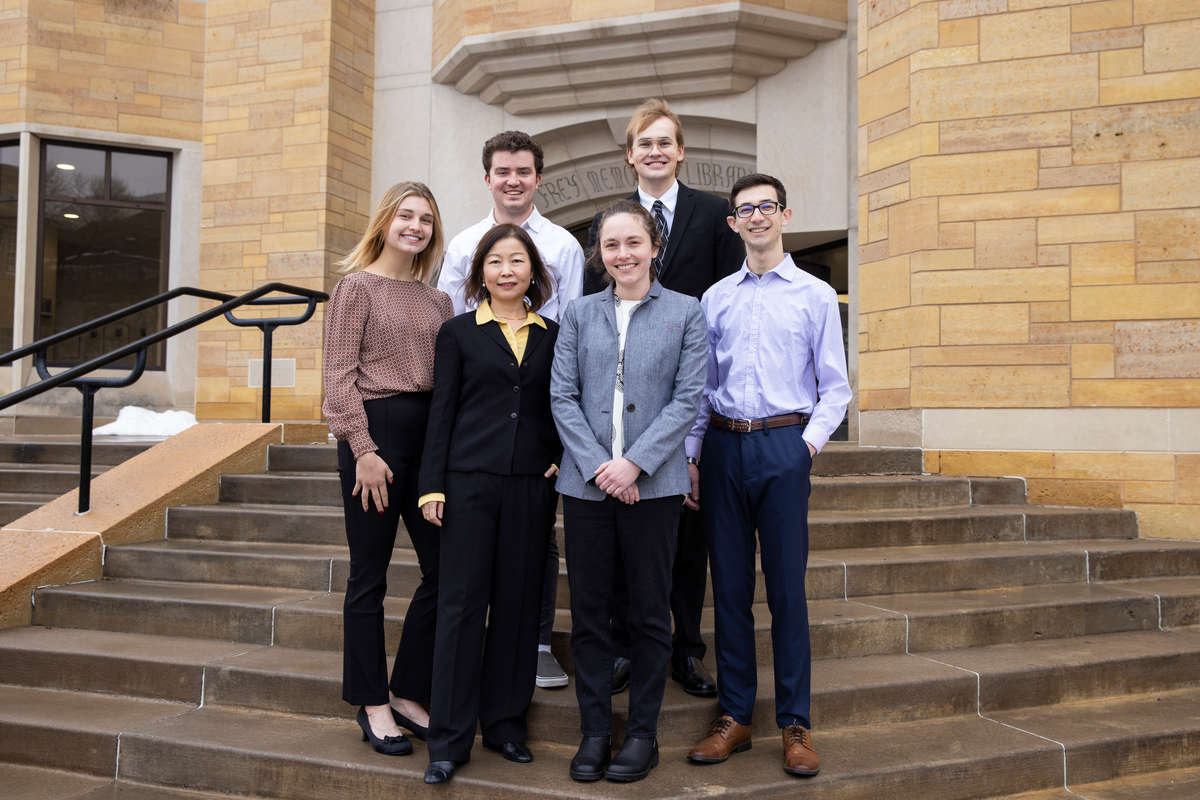The economic impacts of the COVID-19 pandemic are far-reaching. The nation has been impacted by what’s been termed the “Great Resignation,” the labor shortages in critical industries, supply chain bottlenecks, wage trends and high housing costs, many exceeding historical trends.
Students took all those factors, and more, into account when they developed a monetary policymaking plan for a prestigious national competition. The St. Thomas team won second place at-large. This was the second data competition that economics students won in 2021.
Undergraduates from 74 schools competed in the College Fed Challenge, sponsored by the Federal Reserve. The team comprised Rachael Binstock '23, Teo Chagil-Mason '23, Hayden Knorr '22, Anthony Vecchia '22 and Zachary Wise '22. They advanced to the semifinals, eventually placing second – behind UCLA – in the at-large division, which included seven Fed districts and stiff competition.
“This project is important because monetary policy has direct consequences for everyday consumers,” Vecchia said. “For instance, inflation erodes savings, particularly for those at the bottom. Policymakers must understand the magnitude of challenges like inflation and the impact of the tools they can use to fix it.”
Mentored by economics professors Hong Wu, PhD, and Andrea Sorensen, PhD, the team of Tommie changemakers spent several months developing their analysis and monetary policy proposal for the competition.
“Our team recommended that the Fed keep rates near zero and consider scaling back stimulus sooner than later,” said Vecchia, a second-time participant in the competition. “The economic recovery is still fragile, yet inflation is the biggest issue. Keeping rates near zero would keep markets moving while lowering stimulus might calm inflation.”
Each year, the competition asks students to examine and recommend a monetary policymaking plan examining economic and financial conditions. They must model the Federal Open Market Committee, the economy, and the role and function of the Federal Reserve System. Teams were evaluated on teamwork, presentation, responses to the judge's questions, and their analysis of the economy. In addition, strong coding skills are expected.
“Monetary policy has been a heavy topic recently. My teammates made sure we had fun while we learned, and I learned more than expected,” Vecchia said. “There are a lot of moving parts to the economy. I learned which parts the Fed considers heavily, which parts they directly impact, and even which parts are out of their control.”
Alongside St. Thomas, semifinalist teams in the competition hailed from Harvard University, Rutgers University, UCLA, Princeton, University of Chicago, and Dartmouth, among others.
Knorr said the participants were surprised at the end of the competition with a virtual visit from Federal Reserve Chairman Jerome H. Powell. Judges in the presentation and Q&A were from Federal Reserve agencies across the country.







